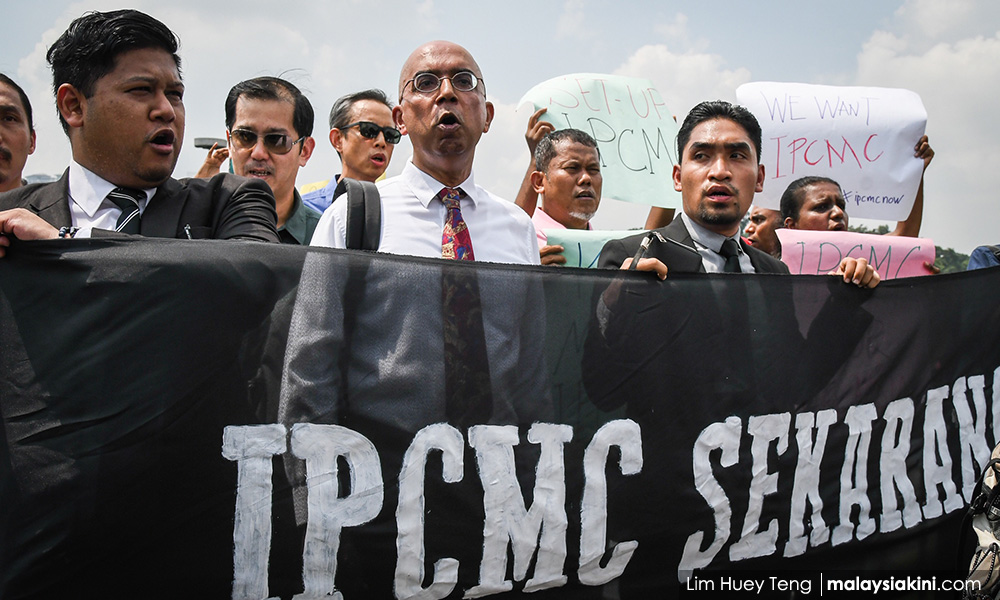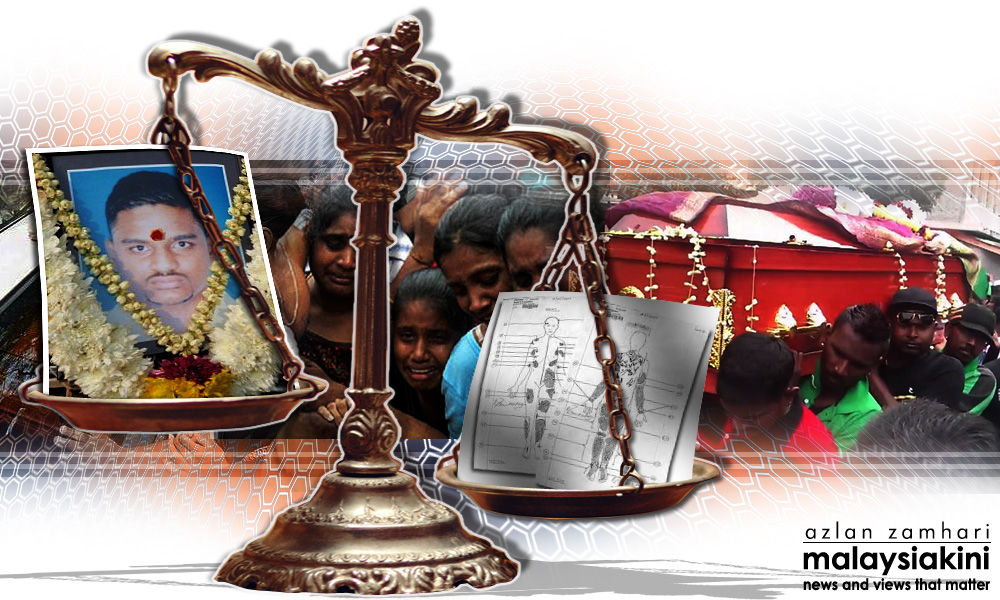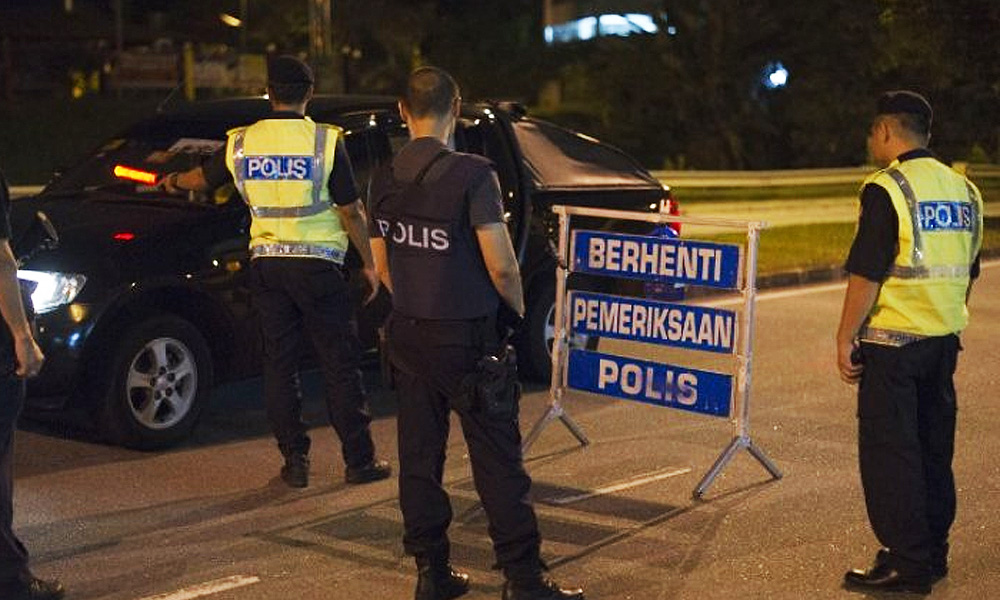MP SPEAKS | Several misconceptions have been circulated about the tabling of the Independent Police Complaints of Misconduct Commission (IPCMC) Bill.
The police, in particular, have expressed concern about the bill, saying that exposing police scandals to the public will weaken the police and tarnish their image.
But the IPCMC is more than just about misconduct, as it will also look at police welfare. There are over 130,000 police personnel nationwide and there is a need to ensure that the needs of the men and women that serve the police force are given priority.
The IPCMC is meant to safeguard police welfare and well-being and to audit and monitor police facilities, operations and procedures to enhance the professionalism, impartiality and accountability of this important institution.
Why is there objection?
The main objection to the establishment of the IPCMC is that it contravenes Article 140 of the Federal Constitution. It is true that our Constitution gives much of the control over the police force, such as appointments, transfers and disciplinary control, to the Police Force Commission.
However, the Constitution also clearly allows Parliament to assign disciplinary control to another authority. It is clear that the framers of the Constitution envisaged a need for a separate body to oversee the police force.
Why do we need the IPCMC?
The idea for the IPCMC is not new: it was first proposed 14 years ago, in 2005, as part of the recommendations made by a Royal Commission of Inquiry following a growing number of deaths in custody and claims of police brutality.
The Royal Commission had received more than 900 complaints of abuse, including deaths in custody, physical and psychological abuse of detainees and misuse of administrative detention laws.
What’s more, the panel also found that there was a systemic lack of accountability and transparency within the police force. It is important to note that deaths in custody should not be automatically attributed to the misconduct of police officers; indeed, a very small number of such deaths are the result of such failings.

However, there is a dire need for an independent body to investigate these matters and to restore public confidence in one of our most important national institutions.
Following the tabling of the IPCMC Bill in Parliament on July 18, 2019, the bill made history by being the first bill to be referred to the Select Committee for the Consideration of Bills.
The select committee has listened to the views of experts, representatives of the police force, representatives of the United Kingdom’s Independent Office of Police Conduct (IOPC), as well as non-governmental organisations with differing views.
I believe that the committee, which includes Azalina Othman (BN-Pengerang) and Wan Junaidi Tuanku Jaafar (GPS-Santubong), has carefully considered all views offered in making recommendations to the Parliament.
Is there no oversight over the police?
Currently, we have the Enforcement Agency Integrity Commission (EAIC), which oversees disciplinary conduct of all enforcement officers. But while it has the power to conduct investigations, it can only recommend actions to be taken by the Police Force Commission and not enforce those actions themselves.
Formation of the IPCMC does not mean that the EAIC will become defunct - it will still maintain oversight over all the other law enforcement agencies.
To its credit, the Royal Malaysia Police has established Jabatan Integriti dan Pematuhan Standard (JIPS) to ensure integrity and discipline. However, there is a concern that the JIPS cannot be fully independent.
How will the public be affected by the IPCMC?
A principle observed by the law enforcement framework across the globe is: the police should be overseen by an independent body. This is crucial as the police possess wide arrays of powers which, without careful scrutiny, may be practised wrongly. In Malaysia, this need is dire as there are concerns about the seemingly unchecked powers of the police.

There are multiple flashpoints: enforced disappearance of Amri Che May and Raymond Koh, the death of Kugan Ananthan in 2009 from kidney failure while in police custody and the 2010 case of 14-year-old Aminulrasyid Amzah, who died after being shot by the police during a car chase. In some of these cases, the victims found justice either by criminal prosecution or through a protracted civil suit.
Observations by human rights groups are also sobering. In its 2016 Human Rights Report Malaysia Overview, Suara said that 721 prisoners were reported to have died in custody during the period 2013 to April 30, 2016.
It also cited a survey by the Human Rights Commission of Malaysia (Suhakam) stating that 10 percent of 369 detainees alluded to have witnessed, heard or suffered physical violence.
An independent IPCMC could ensure that these cases are brought to light and that the proper disciplinary actions could be taken against those who are responsible and would additionally provide grounds for a criminal investigation to be initiated by the police themselves.
Is this just another toothless tiger?
The current bill proposes that the IPCMC be independent of the police force and no police officer sits on its committee. Section 6(2) of the bill also prevents the appointments of former or serving police or government members as commission members.
The IPCMC would be able to investigate wide arrays of misconduct. In Clause 47 of the bill, reports of any deaths in custody are to be reported directly to the IPCMC, which reduces the likelihood of the police themselves interfering in such cases.
More importantly, the IPCMC Bill can compel any person, including police officers, to provide information or surrender documents to facilitate an investigation, the failure of which could result in a fine or imprisonment, or both, for them.
Would this cripple the police force?
However, this does not mean that the police officers would be victimised by the process. The bill ensures free and fair hearings and any police officer accused of misconduct would have ample opportunity to defend himself.
The officer can also exercise his right to remain silent. Additionally, one member of the police force will sit on the Disciplinary Board, which would hear allegations of misconduct against the officer.

The amendments recommended by the Select Committee would also allow the police force to maintain disciplinary control over minor misconduct. The police can still investigate and make decisions on their own over minor administrative and disciplinary actions. In these events, the IPCMC would only play a role if any parties appeal to the Minor Misconduct Disciplinary Appeal Board.
The stature of the inspector-general of police (IGP) is also respected. If there is an allegation against him/her, the chief secretary of the government would appoint members of the special board to hear the allegation, in accordance with Article 132 of the Federal Constitution.
By providing the right to appeal and the right to remain silent, the IPCMC Bill would, in fact, provide greater protection to the officers, while at the same time ensuring effective oversight.
Improving the welfare of the police
Having said all of this, I would also highlight that there is a need to take care of the welfare of the officers of one of our nation’s most cherished institutions. We sometimes hear cases of ill-equipped police stations, poor living conditions in police quarters, punishing workload and inadequate salary in the face of increasing cost of living. Within this context, it is understandable that there is a lot of resistance to the introduction of the IPCMC.
Moving forward, I will be more vigorous in advocating for rapid and meaningful improvements to the welfare of our officers. But this can only begin in earnest if we make a serious effort to restore public confidence. The IPCMC is only the beginning.
MARIA CHIN ABDULLAH is the Member of Parliament for Petaling Jaya.
The views expressed here are those of the author/contributor and do not necessarily represent the views of Malaysiakini.

